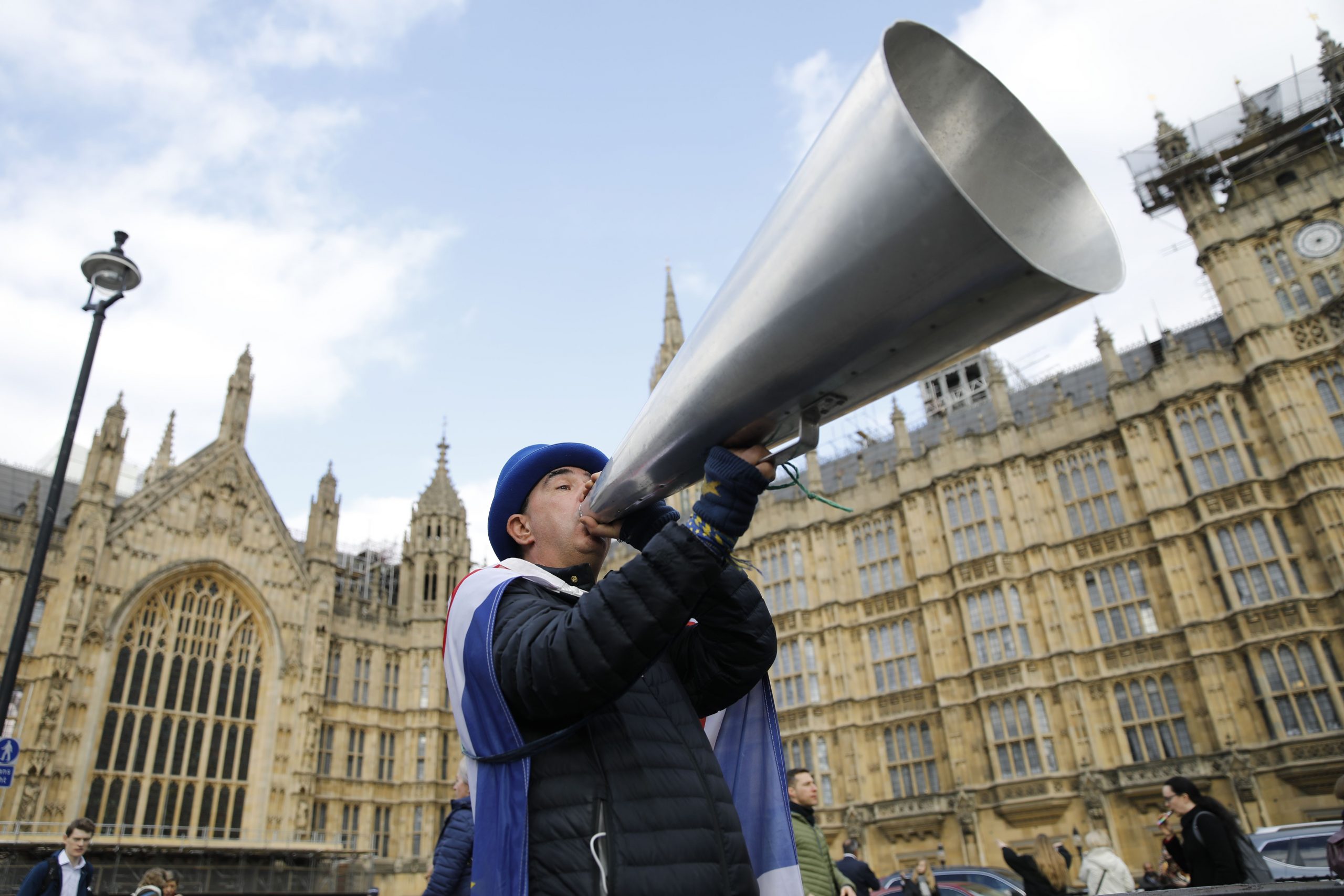
As expected, parliament’s first round of indicative votes failed to produce an outcome capable of passing the House, let alone an absolute majority of MPs. Also as expected, the option that came closest to passing was a softer flavour of Brexit than that being offered by Theresa May – in this case, Kenneth Clarke’s motion to keep the United Kingdom in a customs union.
But the surprise of the night is that Margaret Beckett’s amendment, aka the Kyle-Wilson amendment to put any Brexit deal to a confirmatory vote of the public, did better than expected, winning 268 votes – though it also attracted more opposition than any other amendment tabled by a pro-Remain backbencher.
So what happened last night, and what’s going to happen next? The most important takeaway is that any hope or prospect of Theresa May passing a deal with the support of a minority of Labour MPs is definitively dead and buried. In the end, in the face of a Labour whip in favour of a second referendum, just 47 Labour MPs defied the whip, with 20 abstaining and 27 voting against a second referendum.
Of course, 47 is quite a large rebellion – the largest pro-Brexit Labour rebellion in this parliament, in fact. But it is also surprisingly small given that the number of Labour MPs who are privately opposed to a referendum re-run is a lot larger than 47.
In fact, of the rebels, while there were some new faces among the abstainers – shadow cabinet ministers Ian Lavery, Jon Trickett and Andrew Gwynne among them – the only new Labour rebel to go as far as voting against a second vote was Dan Jarvis.
That hard core of 27 second referendum opponents on the Labour benches isn’t going to get any smaller but equally importantly, if only 27 Labour MPs are going to defy the whip on a second vote, when they have a plausible excuse to offer to their members, there are not 27 votes, or anything like that number, to bail out May’s deal. With the DUP implacably opposed to the current deal – remember, no Brexit is a price that the party is willing to pay for no backstop, if need be – and much of the European Research Group opposed, there simply aren’t enough Labour MPs who are going to stick their neck out and vote for May’s deal unless the Labour leadership actively orders them to do so. (The chances of that happening are somewhere between slim and none.)
But on the other side, the great hope of the second referendum campaigners, that there is a great infusion of Conservative MPs to be unlocked in favour of a second vote, failed to materialise last night. With a free vote for everyone bar the cabinet, just eight Conservative MPs backed a second vote. That’s less than the ten who were willing to risk the anger of their members by voting for the insurance policy of revocation if the UK comes within two days of a no-deal exit, and a significantly smaller number than the 69 who voted to soften Brexit in some way, shape or form, but did not vote for a second referendum.
This is especially important given that if you are a Conservative MP, you know full well you are risking your career by voting for a soft exit. That this group of 69 MPs were willing to do so repeatedly, but would not support a fresh vote is a public sign that the private opposition to a second referendum, even among pro-European Conservatives, is neither a bluff nor a rhetorical device: it is real.
Yet the significance of the second referendum option’s relative success is that now none of the avowedly anti-Brexit parties – not the SNP, not the Liberal Democrats, not TIG, not Plaid Cymru and not Caroline Lucas, the single Green MP – can back any soft Brexit position unless a referendum is attached, but none of the soft Brexit positions did well enough to be able to survive the loss of the Labour and Conservative MPs who backed a customs union but opposed a second referendum.
That means that the chances of another general election have gone up – and the only way to avoid crashing out before the 25 working days necessary to hold an election is a long extension and another set of elections to the European parliament.





